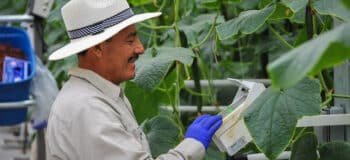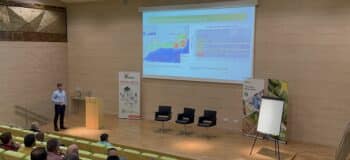31 August 2018
Shortage in CO2 supply a threat to greenhouse growers?

Carbon Dioxide; a much discussed subject and hot topic of global climate agreements. Last year, global carbon dioxide emissions surged to record levels once again, yet greenhouse growers and other food and drink industries are threatened by a CO2 supply issue.
Dirty vs clean CO2
To help you understand this situation you should know that greenhouse growers, just like producers of beers and soft-drinks, greatly depend on the so-called purified CO2. Beverage producers use the clean, food-grade gas to carbonate their drinks, while greenhouse growers use CO2 gas to fertilize their crops and improve photosynthesis. The gas used for these processes mainly comes as a residual product from other industrial processes, such as the manufacturing of ammonia and other fertilizer products. As these source plants are subject to outages and production-reliability, the supply of the widely used CO2 gas is becoming more scarce.
Bottleneck
Reason for several Dutch greenhouse growers to sound the alarm bell and express their concerns about the CO2 shortage. In a recent article on HortiDaily.com, Jacco Besuijen of Dutch tomato growers cooperative Prominent explained that greenhouse growing has become increasingly sustainable ever-since the introduction of renewable energy sources such as geothermal or biomass. However, these new energy sources do not foresee in the supply of CO2. According to Besuijen, the CO2 shortage is a bottleneck for the glasshouse industry.
Improve economical value
In a response to help greenhouse growers manage their CO2 resources better, Ridder recently introduced the CO2 Optimizer. This smart advisory tool enables growers to optimize their CO2 strategies and increase the economical value and impact of the CO2 dosing. The tooling assesses the cost-effectiveness of injecting CO2 into the greenhouse automatically on the grower’s behalf.
Costs & benefits
The Ridder CO2 Optimizer calculates the optimal CO2 levels based on the relevant costs and benefits, including the price paid for the CO2, the intensity of the sunlight and ventilation and climate in the greenhouse. By taking into account important parameters such as the estimated revenues of the crop, extra production and pricing of the CO2, more insight is delivered in the actual benefit of the supplemental CO2. This prevents wasting of valuable CO2 and allows grower to take maximal economical advantage of the use of CO2.
Richard Enthoven, head grower at Dutch tomato grower Duijvestijn uses the Ridder CO2 Optimizer tooling to successfully design a cost-effective CO2 dosing strategy.
The Ridder CO2 Optimizer service is successfully used by renowned international greenhouse growers such as Village Farms and Duijvestijn Tomatoes. It was recently nominated for the GreenTech Concept Award.






